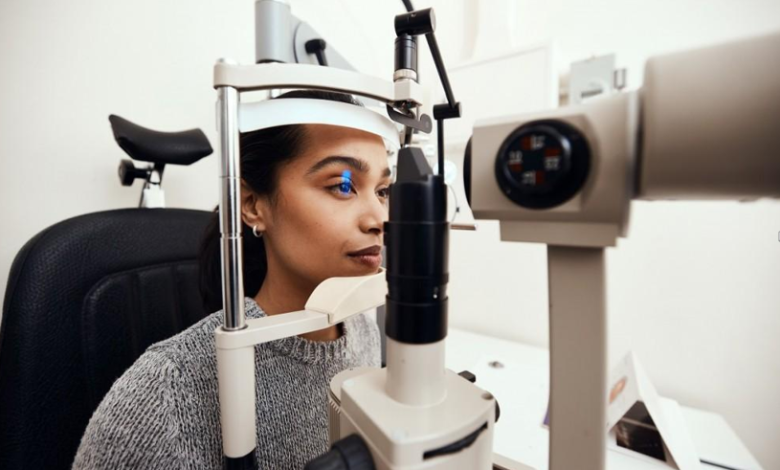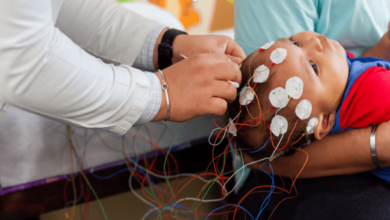Common Retinal Disorders And How They’re Treated

The retina is a thin layer of tissue at the back of the eye responsible for converting light into neural signals that the brain interprets as vision. Any damage or disorder affecting the retina can lead to significant visual impairment. Since the retina is highly sensitive, even minor issues can escalate if left untreated. Routine eye checkups and timely diagnosis are critical for protecting retinal health. Understanding how the retina functions makes it easier for patients to grasp the importance of early intervention and treatment.
Age-Related Macular Degeneration (AMD)
AMD is one of the most common causes of vision loss in older adults. It occurs when the macula, the central part of the retina, begins to deteriorate. Patients may notice blurred central vision, making reading or recognizing faces difficult.
There are two types:
- Dry AMD: Gradual breakdown of light-sensitive cells.
- Wet AMD: Abnormal blood vessels grow under the retina, causing rapid vision loss.
Treatments include lifestyle changes, anti-VEGF injections, and in some cases, laser therapy to slow disease progression.
Diabetic Retinopathy
This condition affects individuals with diabetes, where high blood sugar damages the tiny blood vessels in the retina. Early stages may show no symptoms, but as it progresses, patients can experience floaters, blurred vision, or even complete loss of sight. Regular screening is essential for diabetics, as timely treatment can prevent severe complications.
Treatment methods include:
- Controlling blood sugar levels
- Laser therapy (photocoagulation)
- Injections to stop abnormal vessel growth
- Vitrectomy in advanced cases
Retinal Detachment
Retinal detachment is a medical emergency that occurs when the retina pulls away from its underlying supportive tissue. Patients often report sudden flashes of light, floaters, or a curtain-like shadow across their field of vision. Immediate treatment is crucial to prevent permanent vision loss.
Surgical methods include:
- Pneumatic retinopexy: Gas bubble injected into the eye
- Scleral buckle: Band placed around the eye to hold the retina
- Vitrectomy: Removal of the vitreous gel and repair of the retina
See also: Detox And Recharge: The Role Of Hydrogen Water In Holistic Health
Retinitis Pigmentosa
Retinitis Pigmentosa (RP) is a group of inherited disorders that cause progressive retinal degeneration. Symptoms usually begin with night blindness, followed by tunnel vision, and eventually may lead to complete blindness. There is currently no cure, but treatments focus on slowing progression and managing symptoms. Vitamin A supplements, use of visual aids, and low-vision rehabilitation can help patients maintain independence for longer periods. Gene therapy is also being researched as a potential treatment.
Macular Hole And Macular Pucker
Both conditions affect the macula and interfere with central vision. A macular hole occurs when there is a small break in the macula, leading to blurred or distorted central vision. A macular pucker, on the other hand, is caused by scar tissue forming on the macula, resulting in wrinkling or distortion.
Treatment usually involves surgery called vitrectomy, where the vitreous gel is removed, and in the case of macular holes, a gas bubble may be used to help the hole close.
Treatment Approaches For Retinal Disorders
The treatment chosen depends on the type and severity of the retinal condition. Common approaches include:
- Medications and injections: Especially for AMD and diabetic retinopathy
- Laser therapy: Used to seal leaks in retinal vessels or remove abnormal growths
- Surgery: For retinal detachment, macular holes, or advanced disease
- Lifestyle changes: Diet, exercise, and managing chronic conditions like diabetes and hypertension
Advances In Retinal Surgery And Laser Therapies
Technology has revolutionized the way retinal disorders are managed. Minimally invasive surgery, improved imaging techniques, and precision laser therapies have increased treatment success rates. Anti-VEGF drugs have changed the outlook for AMD patients, allowing many to retain useful vision for years. Robotic-assisted surgical tools are also being introduced, giving surgeons greater control during delicate procedures.
India has seen rapid improvements in specialized eye care, and Chandigarh has emerged as a hub for advanced retinal treatment. The city is known for its modern hospitals equipped with diagnostic tools and experienced specialists. Patients from nearby regions often travel here for treatment because of the high standards of care and accessibility. Finding the best retina specialist in Chandigarh can make a difference in managing complex retinal disorders effectively.





